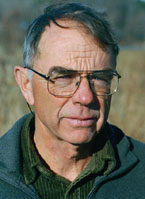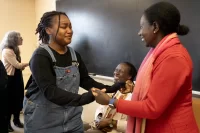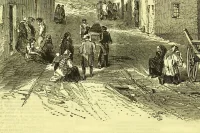Maine essayist Franklin Burroughs to give Otis Lecture
Franklin Burroughs, author of the acclaimed books Billy Watson’s Croker Sack (W.W. Norton, 1991) and The River Home: A Return to the Carolina Low Country (University of Georgia Press; first published in 1992 as Horry and the Waccamaw), visits Bates College to give the eighth annual Otis Lecture at 7 p.m. Wednesday, March 9, in the Edmund S. Muskie Archives, 70 Campus Ave.
The title of Burroughs’ talk is Landscapes: The Mind’s Eye and the Inner Ear. Made possible through the Philip J. Otis Endowment, the lecture is open to the public at no cost. (Please note that the printed Bates Invites You calendar for March erroneously lists a second event at Muskie for this evening. In fact, the lecture by Liyakat Takim will be held in Chase Lounge at 7:30 p.m.)
The recently retired Harrison McCann Professor of the English Language at Bowdoin, Burroughs is nationally known as an essayist focusing on connections between human and natural histories.
For more than 20 years his essays have appeared in some of the most important American journals and reviews, such as The American Scholar, The Georgia Review, The Southern Review and Harpers Magazine. Many of his essays have been included in the annual compilation Best American Essays, and Burroughs is represented in the Norton Anthology of Nature Writing and various Maine publications.
Burroughs is known for the books The River Home recounting his 1985 canoe trip on the Waccamaw River in his native South Carolina; and Billy Watson’s Croker Sack, a collection of essays focusing on hunting, fishing and the rural life.
Burroughs began teaching at Bowdoin in 1968 following his work for the Ph.D. at Harvard University. He received his baccalaureate from the University of the South in 1964.
The annual Otis Lecture at Bates is funded by the Philip J. Otis Endowment, established in 1996 by a gift from Margaret V.B. and C. Angus Wurtele in memory of their son, Philip, a member of the class of 1995 who died attempting to rescue injured climbers on Mount Rainier.
In recognition of Otis’ appreciation for nature, the endowment helps support Bates programs with an environmental focus, in particular those exploring the spiritual and moral dimensions of humanity’s relationship with the environment.





